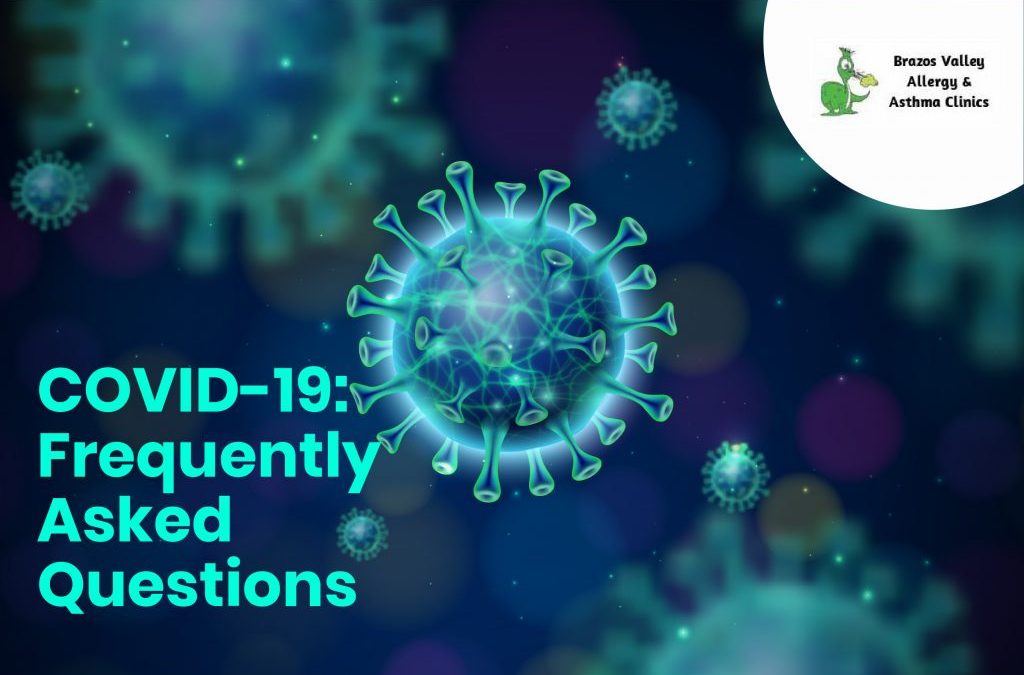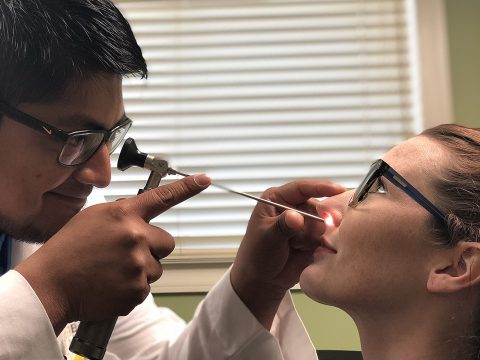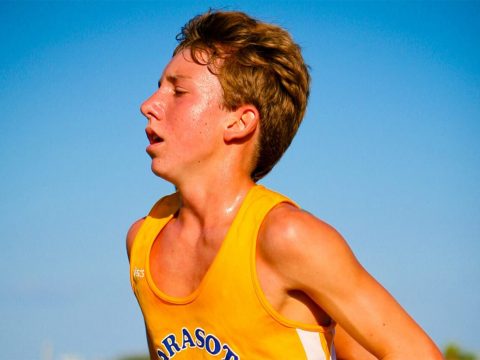- 979-485-9287
- office@bvallergy.com
-
 979-251-7804
979-251-7804
COVID-19: Frequently Asked Questions

COVID-19: Prepare for the New Normal
April 20, 2020
COVID-19: Caring for Someone at Home
May 14, 2020Overview
Last year, news broke out that a new coronavirus appeared in Wuhan, China in late December 2019. Dozens of people in China died and thousands of people got infected. This novel coronavirus designated as COVID-19 continues to spread around the world and is increasingly claiming lives. Its emergence has caused a lot of questions from ordinary people. If you haven’t been caught up with the latest information, here are some of the frequently asked questions about COVID-19:
Frequently Asked Questions
What is a novel coronavirus?
According to the Centers for Disease Control and Prevention is a novel coronavirus is a new coronavirus that has not been previously identified. The virus causing coronavirus disease 2019 (COVID-19), is not the same as the coronaviruses that commonly circulate among humans and cause mild illness, like the common cold.
Why is the disease called COVID-19?
The World Health Organization announced that the official name of the disease is coronavirus disease 2019, abbreviated as COVID-19. In COVID-19, ‘CO’ stands for ‘corona,’ ‘VI’ for ‘virus,’ and ‘D’ for disease. Formerly, this disease was referred to as “2019 novel coronavirus” or “2019-nCoV”.
How does the virus spread?
According to Corona Tracker, the virus that causes COVID-19 spreads mainly from person to person. It is transmitted mainly through respiratory droplets produced when an infected person coughs or sneezes. The droplets can land in the mouths or noses of people who are nearby and inhaled into the lungs. The spread is more likely to occur when people are in close contact with one another (within about 6 feet).
Can someone who has had COVID-19 spread the illness to others?
As mentioned earlier, the virus that causes COVID-19 is spreading from person-to-person. People are thought to be most contagious when they are symptomatic (the sickest). This is the reason why the CDC recommends that these patients be isolated either in the hospital or at home. It should be done until they are better and no longer pose a risk of infecting others. More recently the virus has also been detected in asymptomatic persons. These are people who show no signs of the disease yet can transmit the virus to other people.
Can someone who has been quarantined for COVID-19 spread the illness to others?
Quarantine means separating a person or group of people who have been exposed to a contagious disease but have not developed illness (symptoms) from others who have not been exposed. This is to prevent the possible spread of that disease. Quarantine is usually established for the incubation period of the communicable disease, which is the span of time during which people have developed the illness after exposure. For COVID-19, the period of quarantine is 14 days from the last date of exposure because the incubation period for this virus is 2 to 14 days. Someone who has been released from COVID-19 quarantine is not considered a risk for spreading the virus to others because they have not developed illness during the incubation period.
Can COVID-19 be spread through food?
Currently, there is no evidence to support the transmission of COVID-19 associated with food. Before preparing or eating food it is important to always wash your hands with soap and water for at least 20 seconds for general food safety. It is important that throughout the day, use a tissue to cover your coughing or sneezing. Also, wash your hands after blowing your nose, coughing, or going to the bathroom. However, it may be possible that a person can get COVID-19 by touching a surface or object, like a packaging container, that has the virus on it and then touching their own mouth, nose, or possibly their eyes. But this is not thought to be the main way the virus spreads.
How can I protect myself?
According to CDC, Wash your hands often with soap and water for at least 20 seconds especially after you have been in a public place, or after blowing your nose, coughing, or sneezing. If soap and water are not readily available, use a hand sanitizer that contains at least 60% alcohol. Avoid close contact with people who are sick. Put distance between yourself and other people. You have to remember that some people without symptoms may be able to spread the virus. It will also be a big help if you clean and disinfect frequently touched surfaces daily. This includes tables, doorknobs, light switches, countertops, handles, desks, phones, keyboards, toilets, faucets, and sinks.
What should I do if I have had close contact with someone who has COVID-19?
If you have a fever, cough, or other symptoms, you might have COVID-19. Most people have mild illness and are able to recover at home. If you think you may have been exposed to COVID-19, contact your healthcare provider immediately. As much as possible, stay in a specific room and away from other people and pets in your home. Also, you should use a separate bathroom, if available. If you need to be around other people or animals in or outside of the home, wear a cloth face covering. Keep track of your symptoms. If you have an emergency warning signs (including trouble breathing), get medical attention right away.
Conclusion
These are tough times and we need to protect ourselves from the threat that is the coronavirus. I’m sure you still have a lot of questions in your mind. If you want to know more about how you can better protect yourself from the coronavirus, you can contact Brazos Valley Allergy & Asthma Clinic. Dr. Paul Jantzi has spent the last 13 years serving the South Central Texas region as an allergist. He is a board-certified in allergy and immunology with prior specialty training in pediatrics and internal medicine. Schedule an appointment now to know more about the coronavirus.




